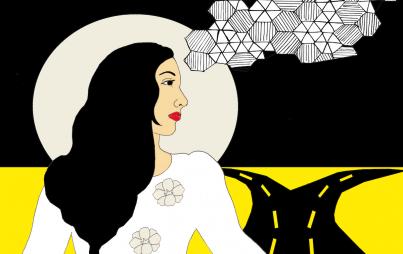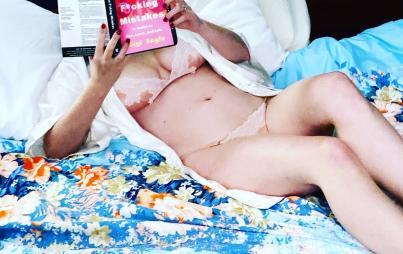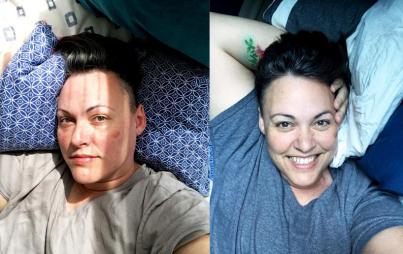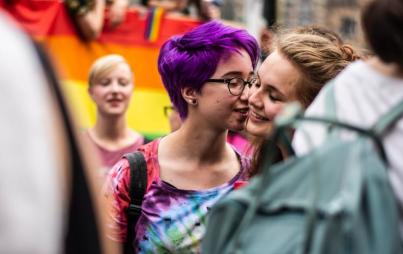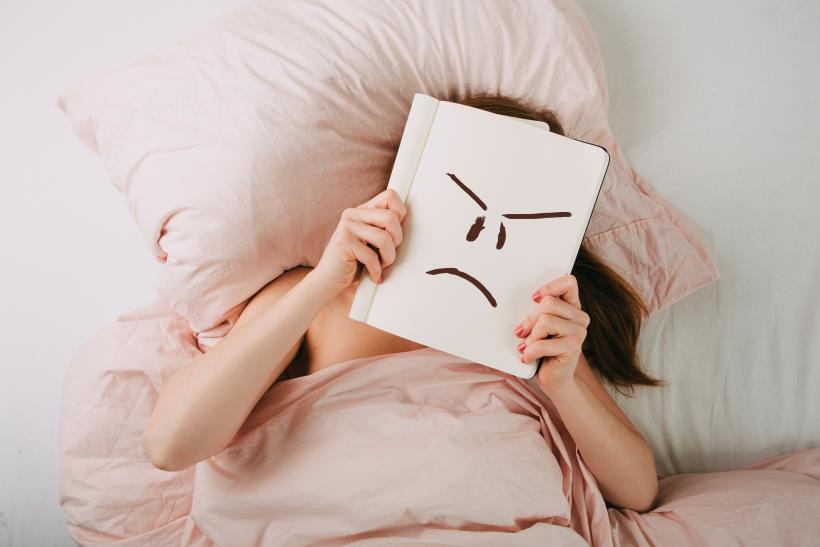
When I first came out as bisexual in middle school, I expected people not to take me seriously. Adults never believe teens know what they’re talking about, even when we're talking about ourselves. What I didn’t anticipate was how erasive people would be about my identity as a bisexual person.
In many instances, it wasn’t about people not believing I could be gay — it was that they didn’t necessarily “believe” in bisexuality.
These days, I identify as queer, which is a term that for me means I’m attracted to people of all gender identities, including people who don’t feel like they fit into the binary or don’t have a gender they connect with at all. Some people who identify the way I do call themselves pansexual, and that’s why I call what I experience “bi+ erasure” instead of “bisexuality erasure.” This form of erasure includes people who are bisexual, pansexual, queer, and basically anyone who doesn’t identify as completely gay, lesbian, or straight.
Here are a few ways that society erases bi+ identity and experiences:
1. Assuming We’re “Straight Now” Or “Gay Now” Because Of Our Relationship Status
I’m in a committed, long-term relationship with a woman, so people often mistake us both for lesbians, even though we both identify as queer/bisexual.
“When someone thinks I've suddenly stopped being bi, I kind of feel like, did you ever really believe I was bi in the first place? Or did you think it was just a phase?” says Katherine from San Francisco.
My partner and I aren’t homosexual just because we’re together, even though we’re fully monogamous and not seeing other people. We’re still queer; we’re still both attracted to people of other genders. In fact, one of our favorite past times is checking people out together, because we’re both confident enough in our relationship that jealousy is rarely an issue.
2. Being Told That Bisexuality Simply Isn’t Real
A lot of people think bisexuality doesn’t exist, which I guess makes my girlfriend and I both unicorns? I’d be happier as a mermaid, but if I’m going to be a magical creature, I want aquamarine hair that doesn’t frizz when it rains, dammit. Is that so much to ask for?
“There just seems to be a lot of insecurity from both sides about why a bi+ person can't pick a side, instead of acknowledgement that sexuality is MUCH more complicated than being attracted to one gender,” says Irina Gonzalez, a Latinx bisexual from Fort Myers, FL.
I’ve been told by LGBTQ+ community members and cis straight folks that my identity isn’t real. I’m guessing they've either never seen my Top 10 Hot List (hint: it features all genders) or watched me Instagram stalk my favorite semi-celebrity crushes, because I am crushing hard on men, women, and nonbinary people. I have always said that my favorite thing about being bi+ is that I get to check everyone out all the time; it’s actually pretty awesome.
"A lot of my bi+ friends who are in straight-passing relationships worry about this even more than I do, because there’s a sense of rejection from the LGBTQ+ community, like they aren’t “queer enough” to belong."
“My therapist one time told me that bisexuality doesn't exist,” says Maria from Buenos Aires. “He was also really obsessed with the ‘importance’ and ‘significance’ of penetration.”
The myth that bisexuality isn’t real is even more pervasive for bi+ men, who are often pushed into the idea that they’re just hiding in the closet and will come out as gay soon enough. I can’t say this often or loud enough: Bi+ identities are valid for people of all genders. You can be a bi+ man. You can be a bi+ woman. You can be bi+ and nonbinary. You can be bi+ and bigender or genderfluid. Your identity is valid, whether society tells you that or not.
3. Telling Us That We Don’t Belong In A Community Or Conversation.
This happens all the time to bi+ people who are currently in a relationship with someone who doesn’t share their gender identity; for example, couples made up of one man and one woman, even if both people identify as queer.
“I am married to a cis man who also identifies as queer and basically straight spaces erase my queerness and past relationships with women, and especially lesbian women have literally ‘outed’ me as being with men in large groups of queer people,” says Addie Tsai from Houston, TX, “But as a biracial person it's something I'm acquainted with in other arenas of my life.”
It’s not okay to erase someone’s identity just because they’re in a relationship — or not in one.
There are some conversations I can never have with my straight friends because, for example, I’m not planning to conceive a child naturally and I don’t have to worry about unintended pregnancy. But that doesn’t mean my opinion on whether Ian Somerhalder is hotter than Paul Wesley isn’t valid (Ian is hotter, obviously) because I’ve seen The Vampire Diaries multiple times, and I can back up my opinion with solid, shirtless evidence. I’m still queer, and that identity is always going to be a part of my life; it just means I’m checking out Nina Dobrev while I’m watching, too.
“My partner and I often appear to people as lesbians although I am queer and have a fluid sexuality and my partner is non binary,” says Liz von Klemperer from Brooklyn, NY. “We struggled about whether or not we would go to the NYC dyke march, which is intended for dyke identifying people. Neither of us are dykes but we identify with that community because we are so often read as such.”
4. Believing That Our Sexuality Is A Threat To The LGBTQ+ Community
For a long time, I actually believed this, too.
I harbored internalized biphobia for years. I thought I was actually gay, but just holding on to society’s idea of who I should be in my attraction to other genders. What was wrong with me? Did I just secretly want to be straight? I felt like I needed to claim the “fully gay” label in order to move LGBTQ+ rights forward, as if the “B” and “Q” in the acronym aren’t an important part of the community. It doesn’t help that even media and spaces made for queer women, like The L Word and Faking It, have some slightly biphobic messages (even though both shows have fluid and bi+ main characters).
“Whenever I talk about having dated guys in the past, people are baffled,” says Rachel from North Carolina. “It's odd, because I've only ever called myself queer or bisexual, but I get called a lesbian strangely often. Also, the fact that so many lesbians are sensitive about my refusal to call myself a lesbian, as if me being bi somehow calls their own identity into question. Like, no, both can exist at the same time?”
When I finally claimed the queer/bi+ label for myself, I realized it didn’t pose a threat to the LGBTQ+ community in any way. My sexuality is just as valid as anyone else’s, and I shouldn’t be afraid to own my experiences. A lot of my bi+ friends who are in straight-passing relationships worry about this even more than I do, because there’s a sense of rejection from the LGBTQ+ community, like they aren’t “queer enough” to belong. It’s frustrating, because being bisexual isn’t homophobic or lesbophobic, and bi+ people experience a unique form of oppression known as biphobia — and we get it from all sides, from gay and straight people. It leads a lot of my queer friends to engage in self-reduction and not bring up their sexuality or experiences because they’re afraid people will dismiss them.
I’m bi+ and I may not be a unicorn or a mermaid, but I’m proud — and I’m not going to sanitize my sexuality or my experiences just because they make other people uncomfortable. I’m happy to hold my girlfriend’s hand while we’re walking down the street, arguing about whether Samira Wiley is hotter than Chris Pine.



